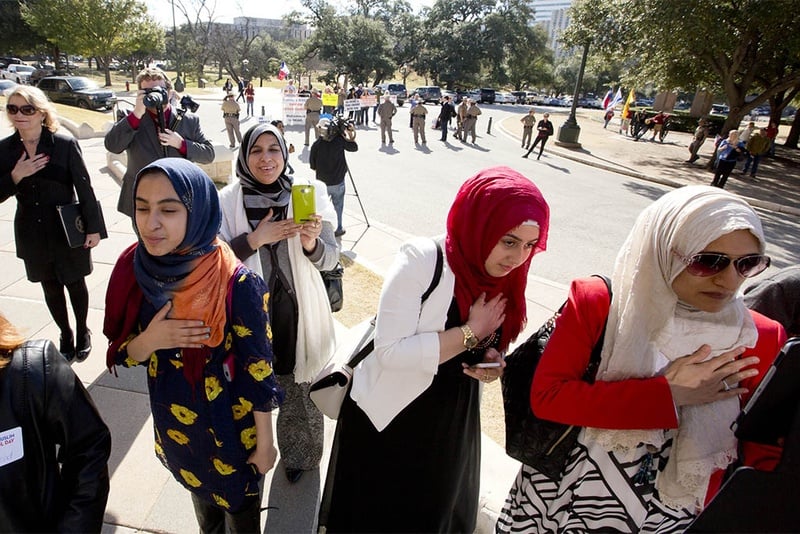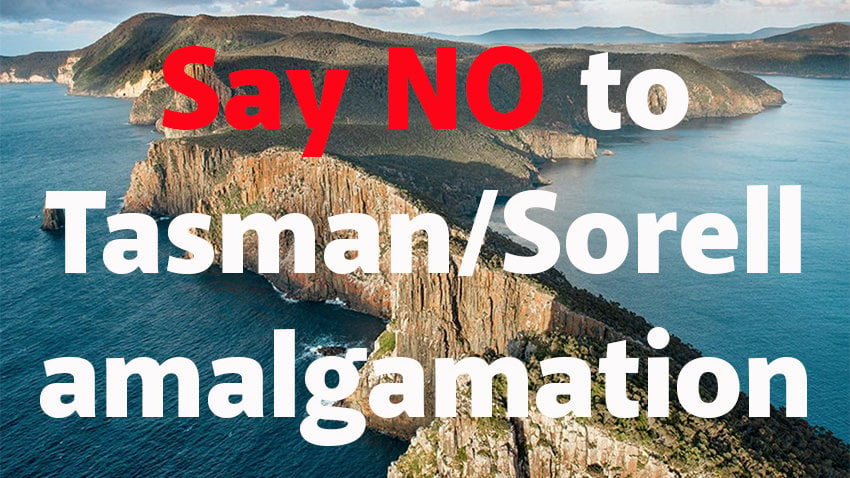Governor Issues Vehement Objection To Controversial Texas Muslim City Plan

Table of Contents
The Governor's Stance and Official Statement
Governor Greg Abbott issued a strongly worded statement condemning the proposed Texas Muslim City Plan, citing concerns about its legality and potential impact on the state. His office released an official press release [insert link to press release here] stating that the plan raises serious questions regarding the separation of church and state, potentially violating the Establishment Clause of the First Amendment.
Key arguments against the plan outlined by the Governor include:
- Legal Challenges: The Governor's office believes the plan faces significant legal hurdles, potentially leading to protracted and costly litigation. They argue that creating a municipality based solely on religious affiliation is unprecedented and likely unconstitutional.
- Potential for Discrimination: Concerns were raised about the potential for discrimination against non-Muslims seeking to live, work, or conduct business within the proposed city limits. The Governor emphasized the importance of inclusivity and equal opportunity for all Texans.
- Impact on Existing Communities: The plan's impact on surrounding communities was another key concern, focusing on potential strains on infrastructure, resources, and social cohesion. The Governor stressed the need for responsible land use planning that benefits all Texans.
- Political Implications: The Governor's strong stance reflects the sensitive political climate surrounding religious freedom and community development in Texas. His opposition may influence future debates about religious land use and zoning regulations.
The Proposed "Texas Muslim City Plan" Details
The "Texas Muslim City Plan," [insert name of plan if available], proposes the development of a new city [insert proposed location, if available] encompassing approximately [insert size, if available] acres. The plan envisions a community primarily for Muslim residents, with features designed to cater to their specific religious and cultural needs. Key features include:
- Mosques: Multiple mosques of varying sizes are planned to serve the community's religious needs.
- Schools: Islamic schools, adhering to specific religious curricula, are included in the development plan.
- Businesses: The city's infrastructure aims to support Muslim-owned businesses, creating economic opportunities within the community.
- Community Centers: Facilities for social gatherings, cultural events, and community building initiatives are proposed.
The motivations behind the plan center around the desire for:
- Religious Freedom: Proponents argue the plan provides a space for Muslims to practice their faith freely and build a community based on shared values.
- Community Building: The aim is to foster a strong sense of community and belonging for Muslim residents.
- Economic Development: The plan seeks to create economic opportunities and self-sufficiency within the Muslim community.
[Insert image or map of the proposed city location and plan here, if available]
Concerns Regarding Religious Freedom and Separation of Church and State
The creation of a city based on religious affiliation raises complex questions about the separation of church and state. While proponents argue the plan promotes religious freedom by creating a space for Muslims to practice their faith without external constraints, critics express concerns that it violates the principle of separation of church and state. Legal scholars [cite sources] argue that such a plan might be challenged on grounds of unconstitutional establishment of religion. The debate hinges on the interpretation of religious freedom and the potential for discrimination against individuals who do not share the city's religious affiliation.
Potential Economic and Social Impacts of the Texas Muslim City Plan
The projected economic impacts of the Texas Muslim City Plan are complex and uncertain. While proponents anticipate job creation and economic growth within the new city, critics raise concerns about potential negative impacts on surrounding communities.
- Economic Benefits: Proponents argue the plan could stimulate economic activity through the creation of new businesses and jobs.
- Economic Drawbacks: Opponents worry about potential strain on resources and infrastructure in surrounding areas.
- Social Integration: The potential for social cohesion and integration between the new city and surrounding communities is a key concern.
Public Reaction and Opposition to the Texas Muslim City Plan
Public reaction to the Texas Muslim City Plan has been sharply divided. Supporters emphasize the importance of religious freedom and community building, while opponents express concerns about potential discrimination, segregation, and the legal implications. Protests [cite sources] and petitions [cite sources] have been organized both for and against the plan, highlighting the passionate nature of the debate. Quotes from public figures, community leaders, and ordinary citizens involved in the debate can be found [cite sources].
Alternative Perspectives and Potential Solutions
Instead of creating a religiously segregated community, alternative approaches could achieve similar goals. These could include:
- Targeted Community Development: Focusing on improving existing infrastructure and services in areas with significant Muslim populations.
- Interfaith Dialogue and Collaboration: Fostering understanding and cooperation between different religious communities.
- Inclusive Zoning Regulations: Creating inclusive zoning regulations that promote religious diversity and prevent discrimination.
Finding a balance between religious freedom and community cohesion is crucial. Through compromise and collaboration, a solution can be found that addresses the needs of all stakeholders.
Conclusion
Governor Abbott's vehement objection to the Texas Muslim City Plan highlights the multifaceted and controversial nature of this proposal. While supporters champion religious freedom and community building, opponents raise significant concerns about the plan's legality, potential for discrimination, and impact on existing communities. The key arguments for and against the plan underscore the delicate balance between religious freedom, the separation of church and state, and the importance of fostering inclusive and integrated communities. The ongoing debate surrounding the "Texas Muslim City Plan" demands further attention and careful consideration. Understanding the nuances of this complex issue is crucial for fostering informed public discourse and finding constructive solutions that respect religious freedom while upholding the principles of inclusivity and equality. Stay informed about developments concerning this controversial Texas Muslim City Plan and engage in respectful dialogue to promote a more unified and understanding community.

Featured Posts
-
 Tasman Council Urged To Keep Key Road Open A Realistic Approach
May 13, 2025
Tasman Council Urged To Keep Key Road Open A Realistic Approach
May 13, 2025 -
 Is Byds 5 Minute Ev Fast Charging The Future A Real World Test
May 13, 2025
Is Byds 5 Minute Ev Fast Charging The Future A Real World Test
May 13, 2025 -
 Observing Life Cycles A Students Guide To Campus Farm Animals
May 13, 2025
Observing Life Cycles A Students Guide To Campus Farm Animals
May 13, 2025 -
 Sequel To Hit Heist Film Starring Iconic Scot Now Streaming On Amazon Prime
May 13, 2025
Sequel To Hit Heist Film Starring Iconic Scot Now Streaming On Amazon Prime
May 13, 2025 -
 Scarlett Johansson Visszaterese A Marvel Univerzumba A Kult Statusz Ujraertelmezese
May 13, 2025
Scarlett Johansson Visszaterese A Marvel Univerzumba A Kult Statusz Ujraertelmezese
May 13, 2025
